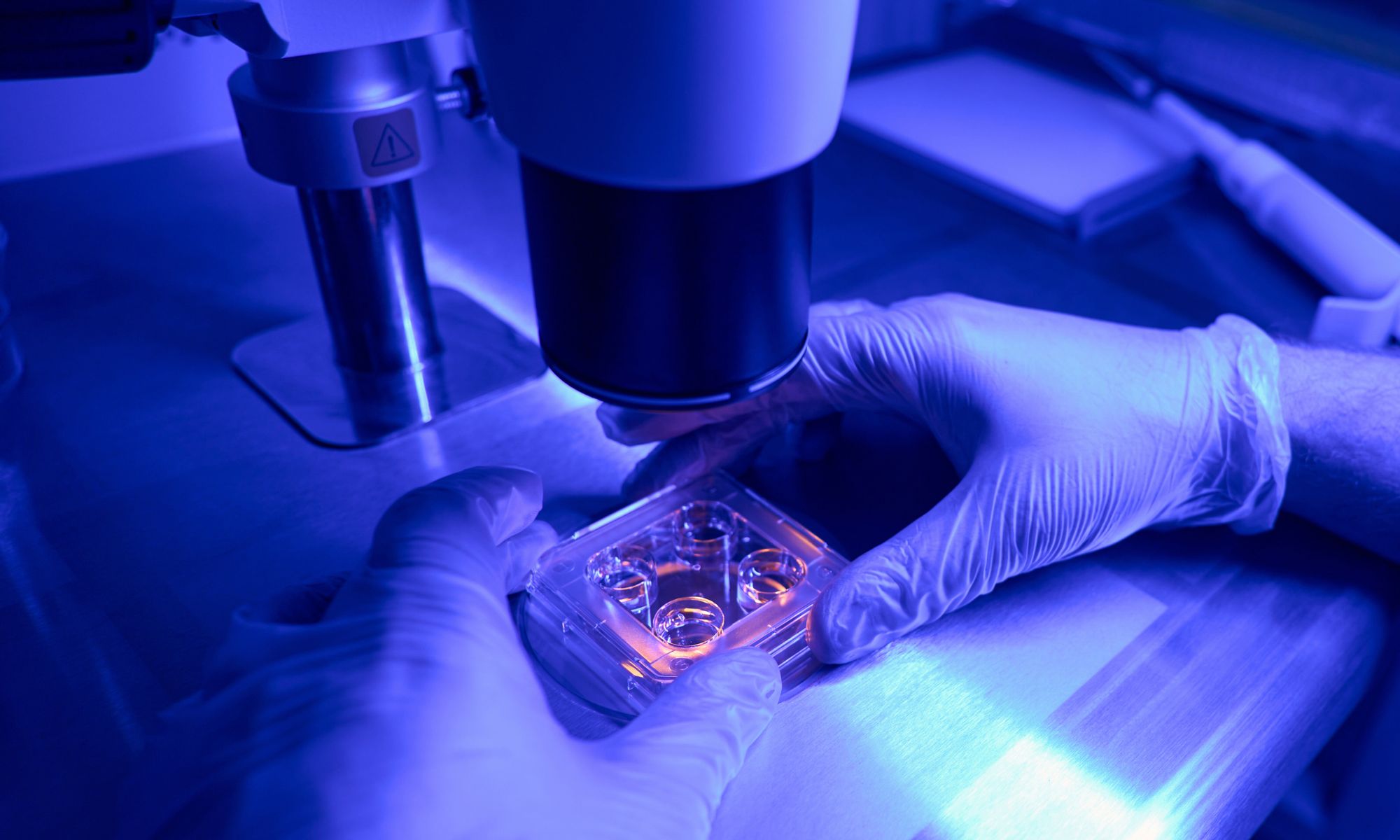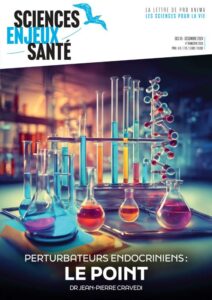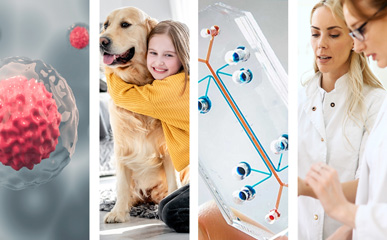
REACH regulation and NAMs, France’s first OoC plant, Clinical applications of human organoids and more
News on non-animal methods
FEB. 10 - 14, 2025NEWS, REPORTS & POSITION STATEMENTS
1. Towards Non-Animal Testing in European Regulatory Toxicology
The European Union’s REACH (Registration, Evaluation, Authorisation and Restriction of Chemicals) Regulation aims to ensure high levels of human health and environmental protection, while also promoting alternatives to animal testing. Nevertheless, the current regulatory practices still heavily rely on animal-based methods.
A new study underscores the scientific limitations of animal models and highlights the ethical and methodological burdens associated with their use. It synthesises the challenges and opportunities associated with integrating NAMs into regulatory toxicity testing under REACH. Key challenges identified include contradictory and inadequate legislative frameworks, slow and restrictive validation processes, low acceptance of NAMs by regulatory authorities, and legislative amendments expected to increase animal testing.
2. Animal Testing Landscape 2025
Animal testing has played a crucial role in medical advancements, leading to major discoveries that have saved countless lives. However, today, more accurate, cost-effective and ethical alternatives are available. Regulatory developments remain too slow to really decrease the number of animals being used. After months of work, the Cherry Biotech team is proud to share its white paper on animal testing.
“In 2025, at a time when rapid progress of AI is more than ever questioning our notions of consciousness, sensitivity and autonomy, it seems essential to decide on the proper use of technologies and to reconsider our current and future relationships with laboratory animals” — Jeremy Cramer, Founder and CEO at Cherry Biotech
3. Real-world evidence on AI’s impact in clinical practice
The Mammography Screening with Artificial Intelligence (MASAI) trial, a randomized, controlled, non-inferiority study, tested AI-supported mammography screening against standard double reading in Sweden’s national screening program. AI-supported breast screening detected 29% more cases of cancer compared with traditional screening. Importantly, AI did not just detect more cancers — it detected more clinically relevant ones. Now the final part of the research study will focus on breast cancer missed by screening.
Published in The Lancet Digital Health, it provides real-world evidence on AI’s impact in clinical practice.
TOOLS, PLATFORMS, CALLS
4. EU Reference Laboratory for alternatives to animal testing
EURL ECVAM is offering open access to its High Throughput Testing (HTT) laboratory to users that want to automate their in vitro methods to evaluate their transferability, reliability and overall performance and to generate large datasets on bespoke compound libraries to assess relevance for targeted applications such as non-animal approaches to toxicological testing for the regulatory safety assessment of chemicals.
The deadline to apply is March 31st, 23:45 (CET)
5. France Biotech HealthTech Trophies
The HealthTech Trophies offer a unique opportunity to showcase talent, promote innovative technologies, and strengthen the industry’s collaborative dynamic. They celebrate the qualities that are shaping the future of healthcare : creativity, perseverance, talent and societal impact. For this 2025 edition, new emblematic themes enrich the usual distinctions, withTrophies focusing on key issues : Made In France Trophy, Celebrating innovation developed and manufactured in France, Prevention Trophy, AI in Health, Mental Health, or Tech Bio, reflecting priorities and trends.
On March 31, 2025, at the prestigious Théâtre de la Tour Eiffel in Paris, the awards ceremony will be enhanced by the presence of an inspiring guest of honor, whose career path will resonate with the ambition and creativity of the winners. Candidate by February 25th.
Read more (FR)
INDUSTRY, BIOTECH & PARTNERSHIPS
6. Netri inaugurates France’s first OoC plant and announces fund raising of €5M
Based on a decade of academic research, NETRI continues its ascent with the inauguration of its organs-on-chip (OoC) production plant in Lyon, a first in France. Accompanied by €5m fund-raising, this new site marks a change of scale for the industrial start-up, which in just six years has become a key player throughout France and internationally, in the field of medical research and healthcare technologies.
“This plant represents a crucial step forward for medical research in France and abroad. It will enable us to mass-produce organs-on-chip, making this technology accessible to a larger number of manufacturers, while strengthening French competitiveness in this strategic field.”, says Thibault Honegger, CEO & Co-founder.
7. Dr. Madhu Nag Appointed to SLAS Board of Directors
InSphero, the global leader in scalable and reliable 3D in vitro cell culture solutions for drug discovery, just announced that Chief Scientific Officer, Dr. Madhu Nag, has been appointed as a member of the Society for Laboratory Automation and Screening (SLAS) Board of Directors, serving a three-year term starting January 1, 2025. Dr. Nag will also take on the role of Board Secretary.
“This appointment is a testament to Madhu’s exceptional contributions to the field of 3D cell culture and her vision for advancing New Approach Methodologies,” said Dr. Jan Lichtenberg, CEO and Co-Founder of InSphero, who served as a Board Member from 2021 to 2023 and was SLAS President in 2023.
8. Manas AI : Disrupting Drug Discovery
January 27th marked a significant milestone toward a future where AI and human ingenuity combine to defeat our most devastating diseases : the launch of Manas AI, a company founded to rapidly expand capacity to discover and develop life-saving medicines.
“We believe this approach can shift drug discovery from a decade-long process to one that takes a few years ; bringing life-saving treatments to patients years faster than ever before. […] By combining human intuition with AI’s pattern-recognition capabilities, we’re not just making drug discovery faster – we’re making it smarter and more likely to succeed.” Dr. Siddhartha Mukherjee & Reid Hoffman, co-founders of Manas AI.
9. First iPSC-Based Therapy to Enter U.S. Phase 3 Clinical Trials
Gameto, a clinical-stage biotech company developing iPSC-based therapies for women’s health, announced that the U.S. FDA)has cleared its Investigational New Drug (IND) application for Fertilo, to enable the launch of the first US-based Phase 3 clinical trial for an induced pluripotent stem cell (iPSC)-based therapy.
In December 2024, Fertilo made history with the world’s first live human birth using its Fertilo technology. By co-culturing immature eggs with Fertilo’s proprietary ovarian support cells, Gameto recreated the natural egg maturation process in the laboratory, offering a faster, safer, and more accessible fertility solution.This groundbreaking milestone highlights the potential of iPSC technology to address critical unmet needs in reproductive medicine.
SCIENTIFIC DISCOVERIES & PROTOCOLS
10. Clinical applications of human organoids
Human organoids have dramatically increased the understanding of developmental and disease biology, providing a patient-specific model with advantages over animal models. This technology can provide insights into emerging and future health threats related to climate change, zoonotic infections, environmental pollutants, etc. Organoids can also show potential for regenerative cell therapies and organ transplantation. Still, several challenges for broad clinical application remain, including increasing model complexity and difficulties with upscaling clinical-grade cultures. To achieve the full potential of organoid technology, interdisciplinary efforts are needed, integrating advances from biology, bioengineering, computational science, ethics and clinical research.
A new review published in Nature Medicine showcases pivotal achievements in epithelial organoid research and technologies and provides an outlook for the future of organoids in advancing human health and medicine.
Read the Review in Nature Medicine
11. Bone tissue engineering with 3D printing
Bones are complex structures with unique properties that make them particularly interesting in cancer research, especially when studying how breast cancer spreads (metastasises) to bone tissue.
Dr Tgiskou’s group at the Henry Royce Institute in collaboration with Dr Harrison and Prof Clarke in Breast Biology Group, Manchester Cancer Research Centre, are revolutionising the field of bone engineering by using 3D printing technology to create sophisticated bone models in the lab. This innovative approach could significantly reduce the need for animal testing while providing more controlled and reproducible conditions for studying bone tissue.


